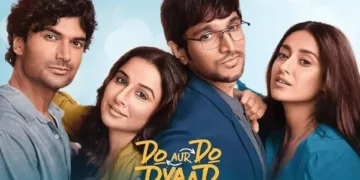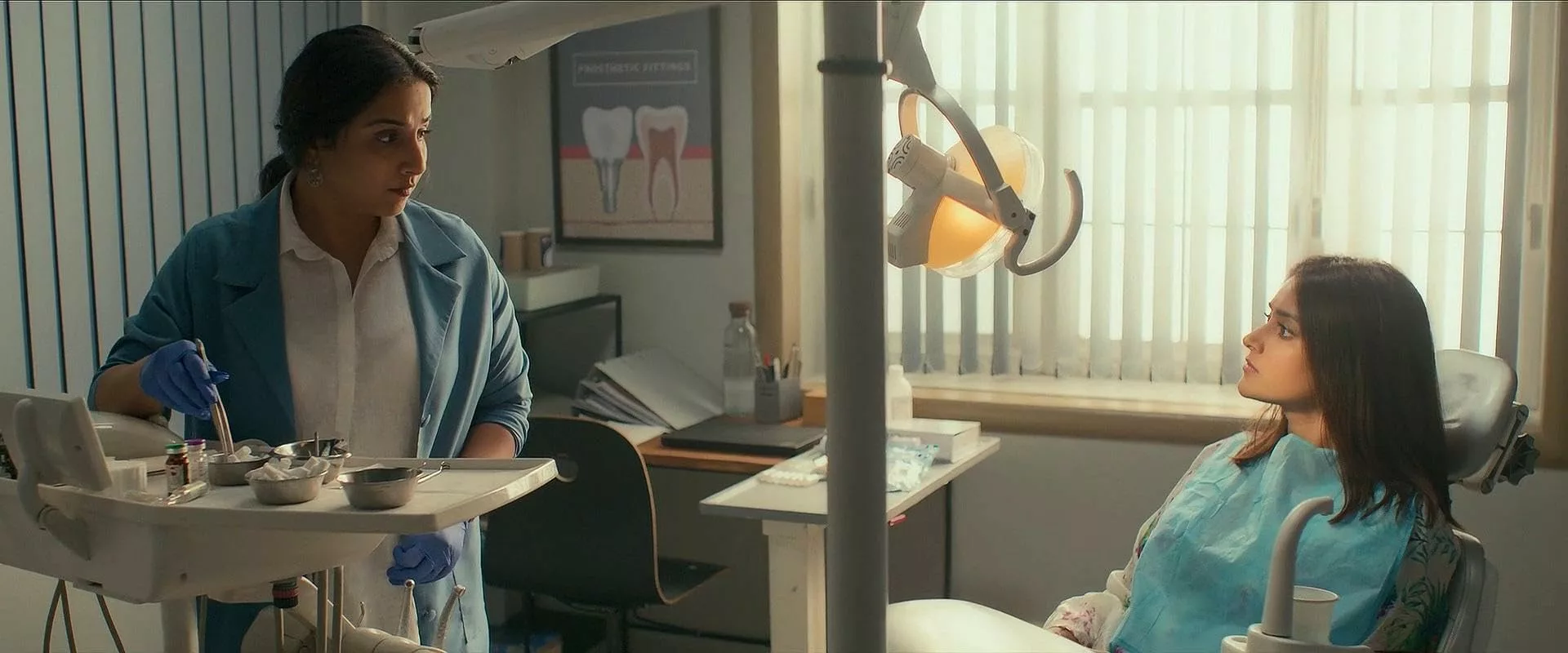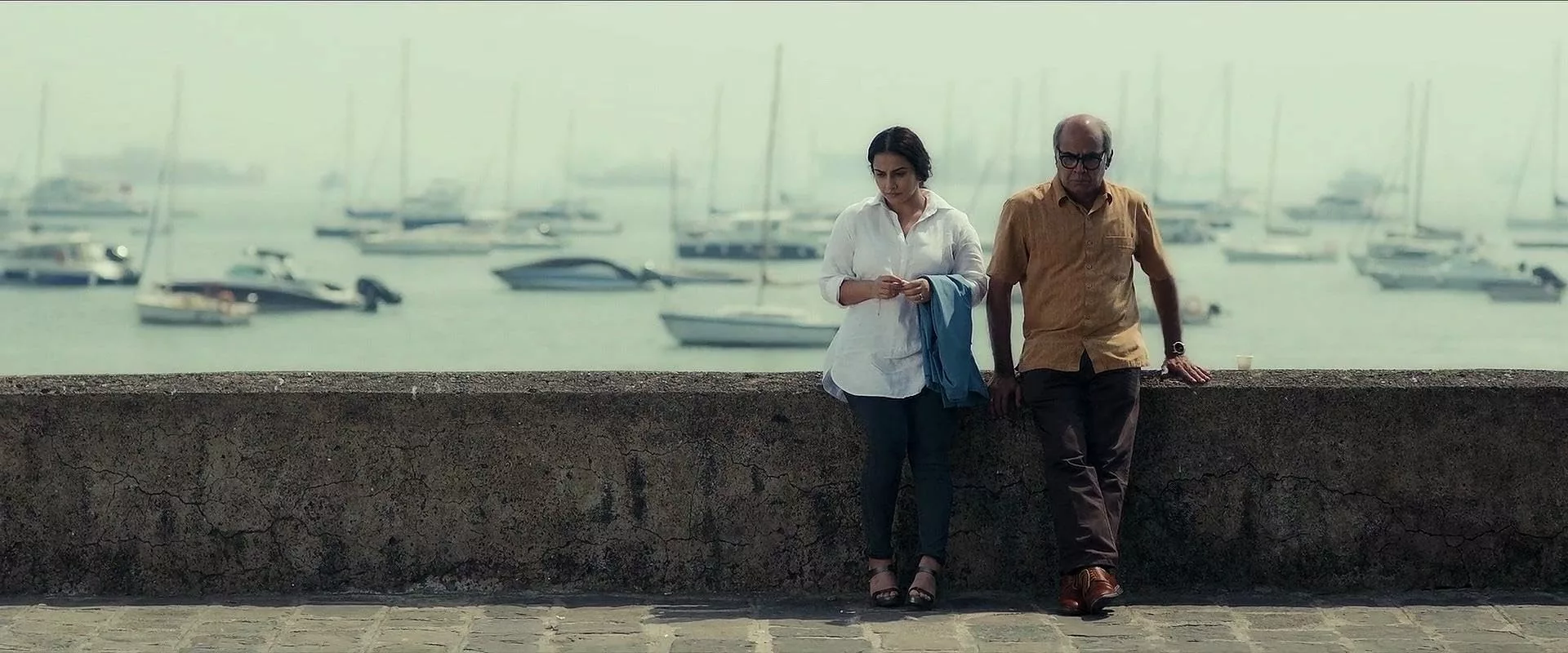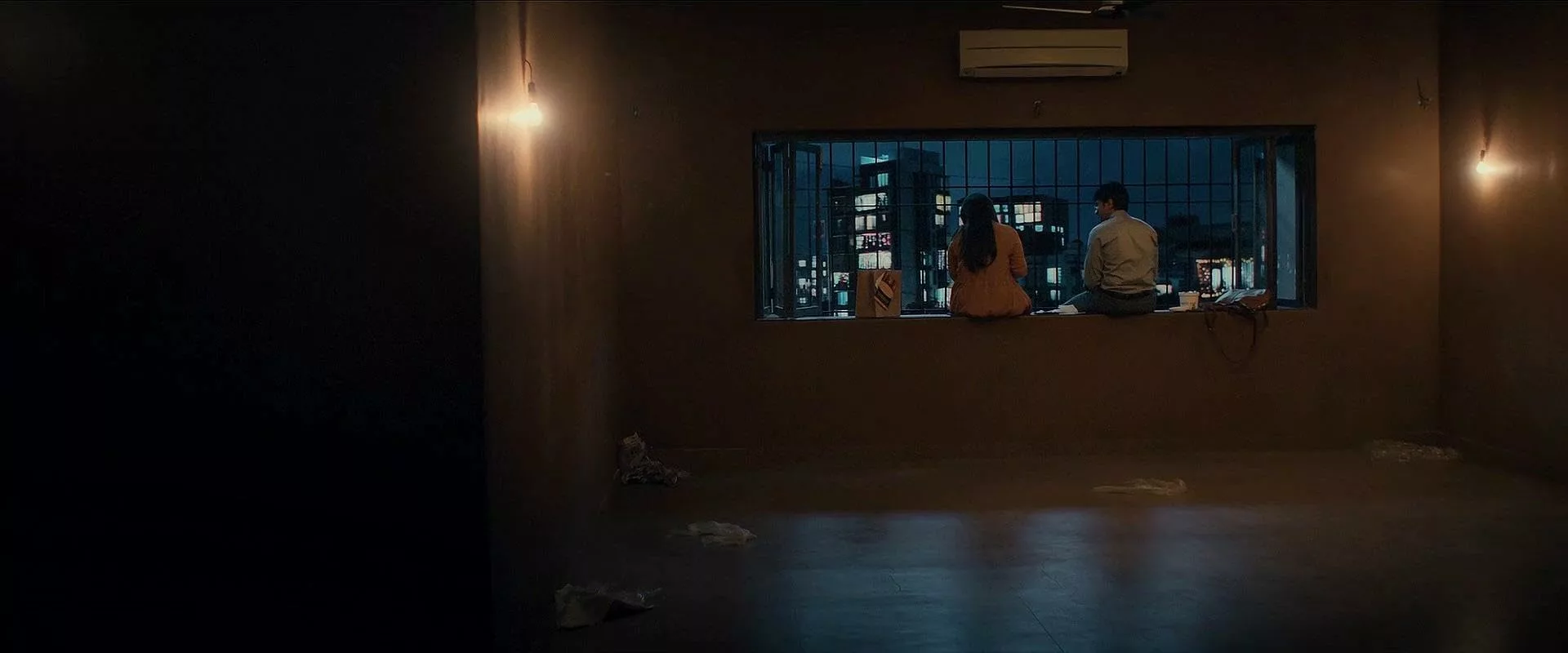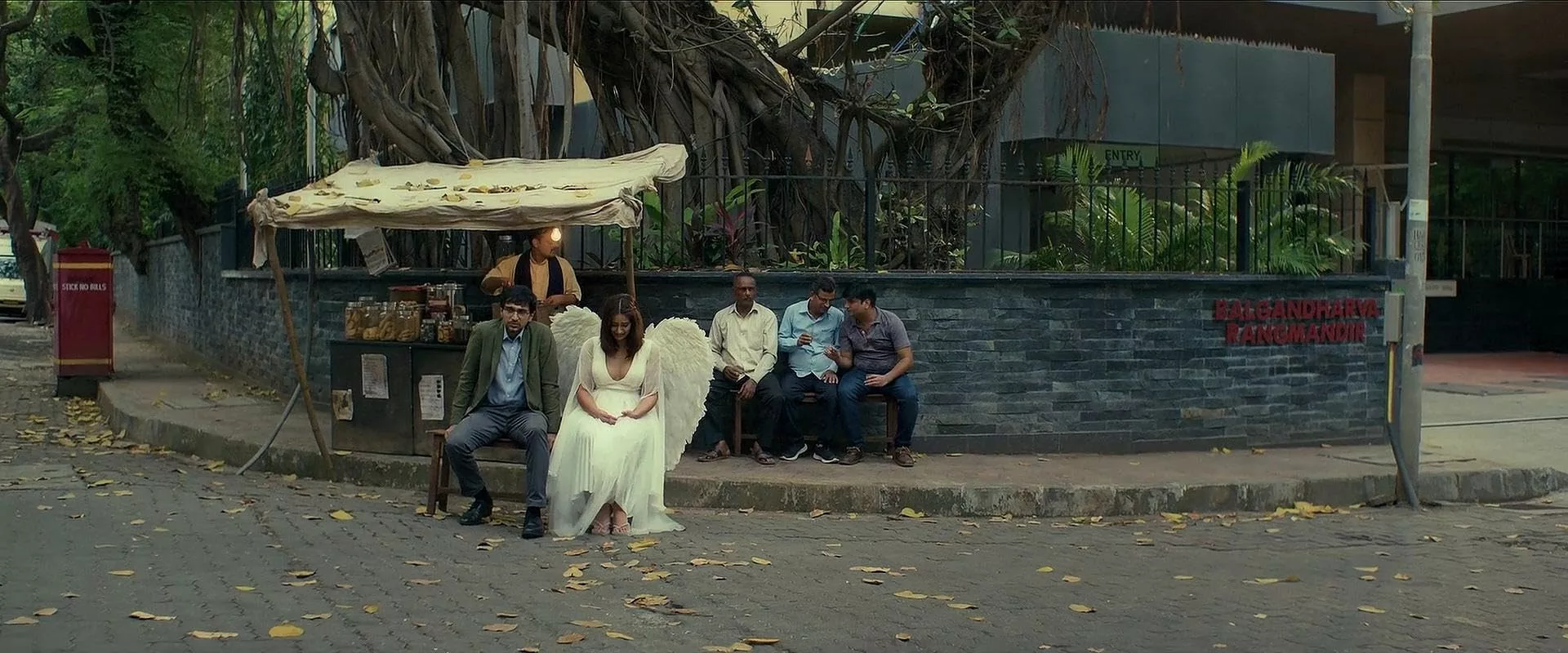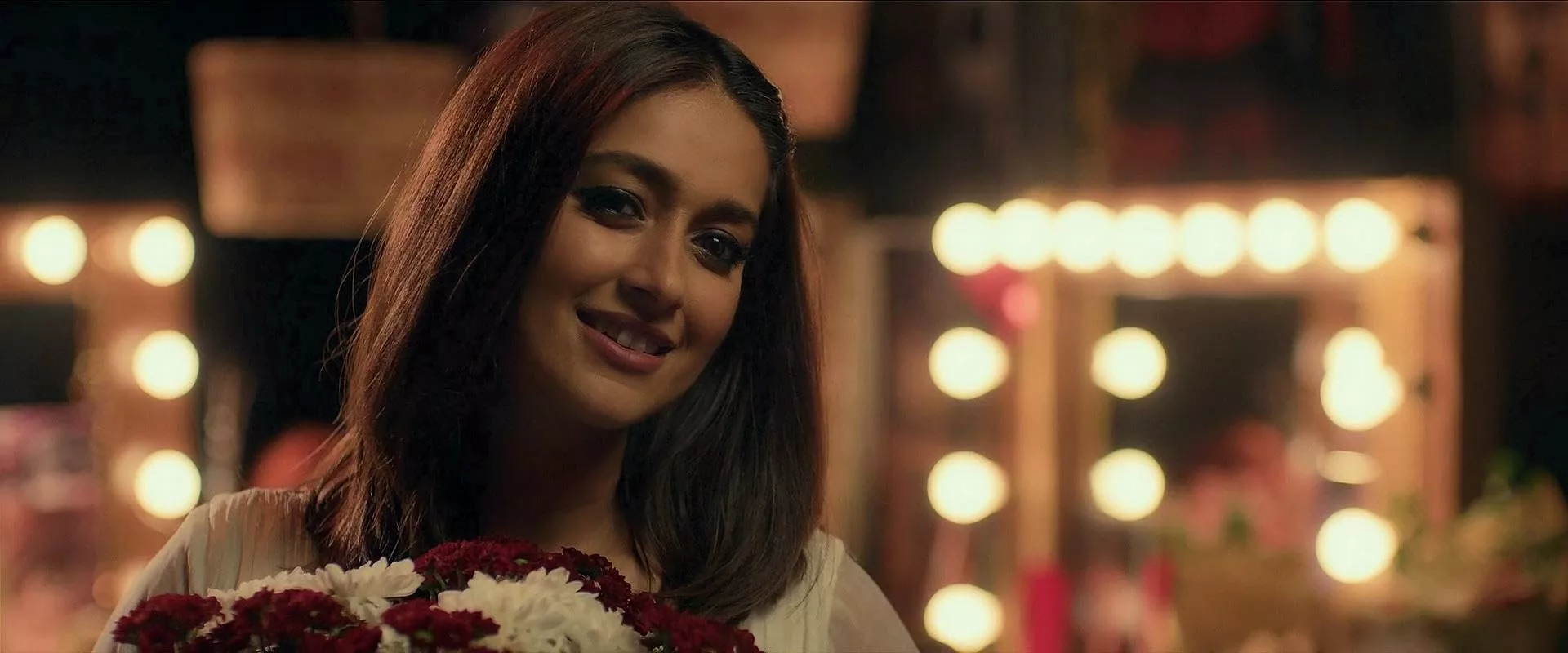A decade into marriage, and the sparks have long faded for Kavya and Ani. Living separate lives under the same roof in bustling Mumbai, the dentist and cork factory worker seek comfort elsewhere, neither willing to admit what’s become painfully clear.
When duty calls Kavya back to her hometown in the southern hills, Ani tags along, revisiting the places where their own whirlwind romance once thrived. Through flashbacks, we see the charismatic couple they were, their hopes running high as they embarked on their adventure together.
Under the watchful eye of Kavya’s disapproving father, present-day tensions mount. Will this forced family reunion reignite what drew them to each other all those years ago or merely drive the final nail into the coffin of their troubled union?
Deftly directing this drama of damaged relationships is Shirsha Guha Thakurta, with superb lead performances from Vidya Balan and Pratik Gandhi anchoring this exploration of love’s endurance against life’s harsh realities.
Relationships Evolve
We meet Kavya and Ani twelve years into their marriage, which began with such a promise. As is often the case, time gradually eroded the passion that first drew these two together. Kavya excelled in her career as a dentist, finding purpose and validation where she once felt love. Ani worked tirelessly at the family cork business but seemed to lack direction in other parts of his life.
Kavya has always been the more headstrong of the pair. Raised by a stern father who emphasized success, she identified independence and challenges as her true nature. After the whirlwind of new romance wore off, staying married provided comfort and stability over the uncertainty of change. But over a decade of routine left her craving stimulation once more.
Quiet and amenable, Ani goes along with the motions of married life but puts little of himself into keeping their relationship alive. He focuses on responsibilities instead of intimacy, leaving Kavya feeling neglected and alone. When a fiery actress enters the picture, showing him affection, he finds it too easy to get swept up in the excitement of something new.
Enter Vikram, a photographer who understands Kavya’s free spirit. His worldly perspective and adventurous nature appeal to her sense of wanderlust. Under his gentle guidance, she blossoms into a more unapologetic version of herself. Vikram sees her truly and accepts all parts, reawakening her faith in love’s power to heal old wounds.
Nora proves a welcome distraction for Ani, clinging to the allure of a fresh start with this charming family man. But she also hopes to change him, molding Ani into the passionate lover she dreams of. Nora fuels their affair with impulsive, consuming feelings but has much left to learn about patience and commitment.
Over the course of the course of a decade, these four became strangers to their spouses and to themselves. A trip down memory lane in Ooty allows them to rediscover who they once were and, perhaps, reconsider who they might like to become. When nostalgia and reality clash, they must decide what their hearts truly need to find peace within.
Commitment in Question
This film takes an insightful look at the realities faced by many couples. Kavya and Ani’s marriage reflects how relationships evolve—or don’t—over the years. Their story highlights questions around what truly holds a union together. Is commitment a state of being, or does it require continual nurturing?
Trapped by expectations, these two settled into roles rather than pursuing their own fulfillment. Over time, distance replaced intimacy as everyday life took priority. With communication lacking, it’s no surprise affiars arose when others stirred long-dormant passions.
Vikram and Nora brought to light qualities missing from Kavya and Ani’s partnership. But were these illicit bonds truly about love or escaping deadened routines? By journeying to Ooty amid family tensions, the past resonates in new ways. Faced with what first drew them together as a couple, lingering feelings reemerge.
Does this chance to reconnect signify their relationship’s worth saving? Or is the damage already done? Revisiting family roots exposes how societal norms shape life decisions, for better or worse. Kavya grapples with seeking validation through respectability over self-knowledge.
Her rekindled spark with Ani raises difficult questions about honoring vows versus personal needs. As lovers swell with uncertainty, the film challenges preconceived notions of marriage’s permanence. Perhaps commitment needs redefining beyond legal contracts—instead, as active caring between two evolving people.
Through its complex characters, Do Aur Do Pyaar stimulates thought on modern relationships’ complex realities. When honesty and meeting each other’s humanity are lacking, it’s no surprise that connections falter. But perhaps, by relearning intimacy, even damaged bonds could rediscover their purpose.
Soothing Scenes, Stirring Songs
This film truly brings its characters’ feelings to life. Kartik Vijay’s cinematography captures every nuance with subtle skill. He paints vivid portraits of Kavya and Ani through shifting frames. As they drift apart in early scenes, distance permeates each shot.
Yet once in Ooty, a warm closeness emerges. Flashbacks convey youthful zest, contrasting poignantly with reality. Vijay ensures each glance and gesture resonates, from sadness to renewed closeness. His lens embraces redemptive themes of finding what’s really important.
Stirring songs match each moment. The soundtrack flows as smoothly as Mumbai’s rain, with moods ranging from lively to melancholic. “Tere Mere Beech Mein” passionately illustrates Kavya and Ani’s courtship. Nostalgia teems in “Tu Jo Mila,” with bittersweet joy filling the lyrics.
Melodies like “Rang” accompany Kavya and Vikram’s blossoming. Their chemistry practically dances off the screen. Meanwhile, “Dil Mein Dhadkane” sweetly fits the early scenes of Ani and Nora. Layered music brings each relationship’s heart fully to life.
Lost Stories sets just the right tone with “Tu Hai Mera.” Subdued guitar expresses slipping away, until a rousing chorus affirms hope for rediscovery. When Chai met Toast, it infused “Nazron Se Kehdo” with soulful echoes of chance meetings. Abbey Road Ensemble stirs emotions powerfully on “Tum Mile.”.
Expertly selected songs convey this movie’s evocative spirit. They immerse viewers in romantic reflection, from fleeting highs to lows healed by understanding. Under Vijay’s devoted direction and talented artists’ touch, Do Aur Do Pyaar engrosses hearts as much as minds. Overall, its artistic mastery leaves an impact long after the closing credits.
Introducing the stars
Do Aur Do Pyaar lives and breathes because of the tremendous talents of its lead actors, Vidya Balan and Pratik Gandhi. Director Shirsha Thakurta possessed an ace up her sleeve in casting these performers to bring her complicated characters alive. From the moment they share the screen, it’s clear the movie revolves around them.
Vidya sinks into Kavya with marvelous subtlety. She breathes depth into each uncertain moment as this dentist grapples with changing feelings. Scenes radiate from her presence alone. Whether clashing with her father or softening with Ani, nuance defines Vidya’s work. She makes Kavya’s flaws ring candidly true while eliciting sympathy. Her vibrant presence revitalizes every setting.
As the exhausted but humble Ani, Pratik delivers with warm charm. He understands that this man finds solace in small things and gives it all. Determined dancers fill the screen whenever Pratik appears. Quieter moments still resonate due to his investment. Pratik and Vidya share incredible chemistry; you root for their relationship as much as you feel its troubles. Together, they elevate material that could easily have become dramatic or unpleasant.
Sendhil Ramamurthy contributes to Vikram’s carefree allure, ensuring this character never seems like a loose obstacle. He portrays complex feelings skillfully and connects sincerely with Kavya. Their connection remains persuasive even as the stakes change.
Ileana D’Cruz perfectly balances Nora’s spunk and vulnerability. She infuses this woman with a playful spirit that makes her faults feel fair. Whether confronting Ani or relaxing with friends, Ileana fleshes out Nora as a realistic soul amid unusual circumstances.
With exceptional leads and quality support, Thakurta harvests vividly written work to its fullest potential. These actors don’t just handle nuanced material; they expand it through irresistible presence. No moment feels flat or perfunctory in their capable hands.
They make you believe, sympathize, and root for all involved, illuminating life’s messy realities with honesty, empathy, and charm. It’s performances like these that transform complex stories into lasting cinematic magic. Do Aur Do Pyaar’s triumph stems directly from the tremendous talents coursing through its performances.
An Important Lesson
Do Aur Do Pyaar tells the story of relationship turmoil with care and honesty. Yet not everything is perfectly executed. Some critiques can be made, particularly around the slower latter stages and side characters left wanting.
The initial premise pulls the viewer right in, captivating them as Kavya and Ani’s marriage unravels. But once reunited in Ooty, momentum slows. Rekindled passion unfolds pleasantly enough yet fails to drive tension or deepen emotional understanding. Scenes feel stretched where brisker pacing could heighten impact.
Side characters also leave more to be desired. Nora, Vikram, and others remain enigmatic despite their prominent roles. Without knowing their hopes or pasts, it’s tough to invest fully in their dilemmas. Viewers want to really understand all the people involved, not just the leads. More depth could have made it all feel more three-dimensional and less soapy.
What deserves praise is how the message resonates. So many relationships flounder because of a lack of open communication. Ani and Kavya’s marriage follows this common thread: they drift due to assuming needs instead of truly listening to one another. Only through reconnecting in Ooty do feelings resurface, though by then distrust takes hold.
It serves as a warning. Relationships require maintenance through compassionate discussion. Resentments, small and large, can wedge partners apart if not addressed sincerely. Viewers witness what silence breeds and how honesty, even very late, mends, at least temporarily, what was broken.
Overall, Do Aur Do Pyaar shines its light on universal struggles with intimacy. Not all works smoothly, but its heart—emphasizing communication as love’s lifeblood—feels profoundly true. And that is what really lingers after the end.
Love’s Layered Truths
In Do Aur Do Pyaar, Shirsha Guha Thakurta has crafted a richly layered portrait of love and marriage. Through its quartet of flawed-yet-striving characters, the film delves deep into what binds couples and what has the power to break them apart.
Anchored by powerhouse performances from Vidya Balan and Pratik Gandhi, the unraveling of Kavya and Ani’s marriage makes for compelling viewing. Their once-passionate connection, now faded into resentment’s shadow, emerges as complexly drawn. Memories’ magic in Ooty brings both pain and possibility.
The addition of Kavya and Ani’s respective partners, Nora and Vikram, brings further nuance. Each pursues intimacy, while partners pursue divorce, exploring love’s capacity to intoxicate and waylay good intentions. Their messy entanglement only reflects life’s hesitations.
While not without its flaws, Do Aur Do Pyaar remains an emotionally impactful experience. Its muted palette captures marriage’s mundanities and rekindles romance with equal veracity. Thoughtful direction presents no easy answers, reflecting relationships’ depth and humans’ inescapable contradictions.
For those seeking movies that mirror life’s scarred realities and messy halves, this film delivers. Its layered portrait of love, in all its joy and jeopardy, makes for an evocative watch. Ultimately a touching human drama, Do Aur Do Pyaar celebrates compassion over judgment in hearts in transition.
The Review
Do Aur Do Pyaar
In conclusion, Do Aur Do Pyaar tells a nuanced story of love and marriage in a realistic yet moving manner. Anchored by excellent performances, the film explores its characters' emotional intricacies with empathy. Though not without flaws, Shirsha Guha Thakurta's directorial debut skillfully navigates complex issues of commitment, communication, and intimacy through smart writing and grounded direction.
PROS
- Excellent performances by Vidya Balan and Pratik Gandhi that make the characters feel authentic
- Beautifully captures the nuances of relationships and the complexities of love.
- A thought-provoking portrayal of the importance of communication
- Makes insightful commentary on societal expectations through Kavya's character.
CONS
- The story of supporting characters like Nora and Vikram could have been more fleshed out.
- The plot gets slightly convoluted in the second half.
- Could have addressed reasons for marriage issues in more depth.
